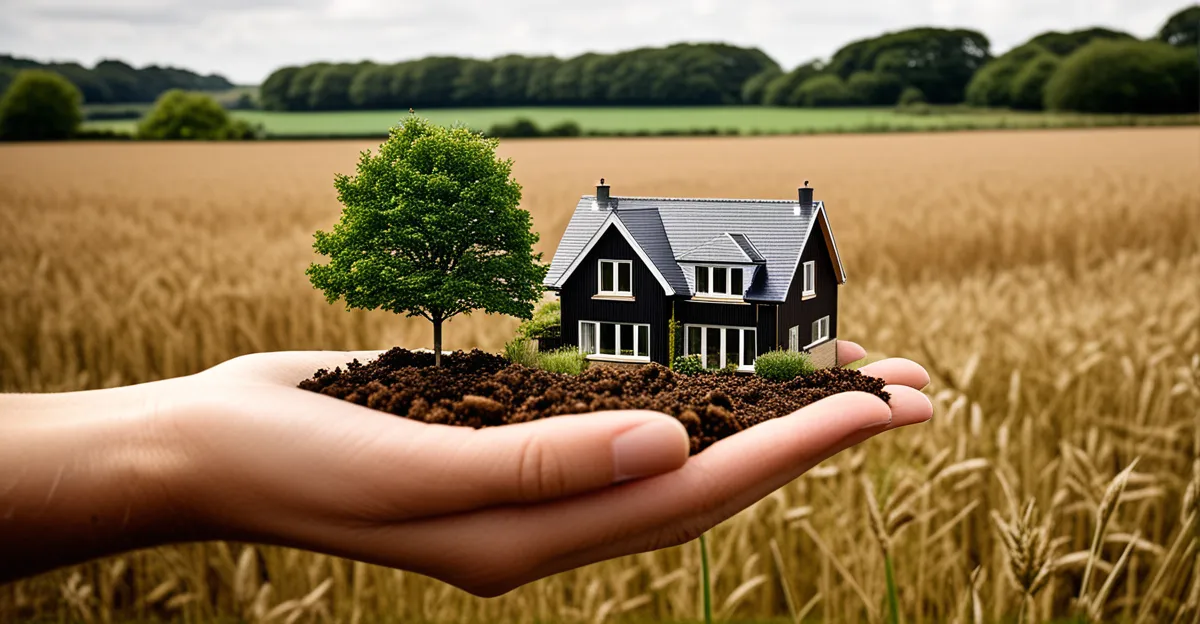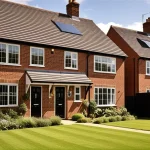Key Trends in Sustainable Real Estate Investment in the UK
Sustainable property investment in the UK is rapidly evolving, driven by growing market demand for energy-efficient and environmentally friendly buildings. Investors increasingly prioritise properties that not only reduce carbon footprints but also offer long-term economic value. This shift reflects broader UK real estate trends, where sustainability is no longer a niche interest but a central investment criterion.
Urbanisation plays a crucial role, intensifying the need for sustainable development UK-wide. As cities expand, demand grows for developments that minimise environmental impact and support climate action goals. These initiatives stimulate investment strategies geared towards resilience and adaptability, ensuring properties remain valuable amid changing environmental regulations.
In parallel : What Are the Key Factors Influencing Real Estate Investment Trends in the UK?
Investors are shifting from short-term gains toward long-term value, recognising that sustainability supports durable asset performance. This strategic pivot aligns with policy changes and societal expectations, reinforcing sustainable development UK as a driver of stable returns. Overall, embracing sustainable property investment is becoming essential for those who aim to thrive in the current UK real estate trends.
Regulatory Landscape Supporting Sustainable Investment
Recent UK sustainability regulation increasingly shapes the real estate sector, demanding robust compliance to meet ambitious climate commitments. The UK government has introduced legislation that directly impacts sustainable property investment, such as stricter building efficiency standards and mandatory carbon reporting. These laws are designed to align investments with both national and local climate targets, ensuring that real estate contributes effectively to carbon reduction goals.
Also read : How can you assess the value of a real estate investment in the UK?
Real estate compliance now involves adherence to frameworks that emphasise energy use, emissions, and overall sustainability in property management. Investors and developers must navigate evolving regulations that encourage greener building practices and penalise carbon-intensive developments. This regulatory environment promotes accountability and drives capital towards sustainable development UK initiatives.
Government initiatives UK-wide offer support mechanisms like grants, tax incentives, and low-interest loans to encourage green investments. Such schemes help offset the initial costs associated with integrating sustainable technologies and achieving compliance. By leveraging these incentives, stakeholders can improve project viability while advancing environmentally responsible real estate practices that align with UK real estate trends prioritising longevity and resilience.
Key Trends in Sustainable Real Estate Investment in the UK
Sustainable property investment in the UK is experiencing a marked shift driven by evolving market demands for energy-efficient, environmentally responsible buildings. This trend reflects broader UK real estate trends where sustainability moves beyond compliance into strategic asset management. Investors are increasingly attracted to properties aligned with sustainable development UK principles, recognising the benefits of resilience and long-term value creation.
Urbanisation intensifies this trend by increasing the need for sustainable urban infrastructure aligned with national climate action goals. As cities expand, sustainable investment strategies prioritise developments that reduce environmental impact while supporting social wellbeing and economic viability. This focus encourages integration of green building technologies and smart planning, which enhances asset performance over time.
Importantly, the investor mindset is shifting from short-term speculation to long-term resilience. Sustainable property investment now accounts for regulatory evolution and community expectations, providing stability amid environmental uncertainty. Investors are weighing energy efficiency, carbon reduction, and adaptive design as core factors, making sustainability integral to UK real estate trends. This holistic approach ensures properties remain competitive and compliant, driving positive market momentum for sustainable development UK initiatives.
Key Trends in Sustainable Real Estate Investment in the UK
The landscape of sustainable property investment in the UK is shaped profoundly by shifting investor priorities and the pressures of urbanisation. One clear trend is the growing preference for properties that deliver long-term resilience over short-term profits. This reflects an awareness that buildings aligned with sustainable development UK principles tend to maintain value and adaptability amid tightening environmental standards and market dynamics.
Urbanisation intensifies demand for real estate solutions that meet stricter climate action goals, encouraging innovations in energy efficiency and sustainable design. As cities expand, investors incorporate factors like reduced carbon footprints and resource optimisation into their decision-making processes. These elements have become central to current UK real estate trends and influence portfolio diversification strategies.
Financially, investors recognise that sustainable property investment offers risk mitigation by lowering exposure to regulatory penalties and future-proofing assets. The integration of green technologies and adaptive infrastructure also enhances tenant appeal and operational savings. Thus, the fusion of ecological responsibility with economic foresight positions sustainability not just as an ethical choice but as a strategic imperative within the UK’s evolving real estate market.
Key Trends in Sustainable Real Estate Investment in the UK
The rising market demand for sustainable property investment strongly influences current UK real estate trends. Investors increasingly prioritise energy-efficient buildings that meet strict environmental standards while promising future-proof value. This shift signals a broader commitment to sustainable development UK, moving beyond compliance to proactive asset management grounded in resilience and ecological responsibility.
Urbanisation accelerates this movement by amplifying the need for developments aligned with climate action goals. As cities expand, investment strategies focus on reducing carbon footprints and enhancing resource efficiency within urban infrastructure. These trends reflect the integration of sustainability at multiple levels, from site planning to construction techniques, promoting a holistic approach to property investment across UK real estate trends.
Investor priorities now favour long-term resilience over quick returns. Sustainable property investment is viewed not only as ethical but also as a strategy to safeguard against regulatory risks and market fluctuations. This evolution encourages the infusion of green technologies and adaptive designs that deliver cost savings and tenant appeal alongside environmental benefits. Embracing these trends secures a competitive edge in the shifting landscape of UK real estate concentrated on sustainability and enduring value.
Key Trends in Sustainable Real Estate Investment in the UK
The surge in sustainable property investment reflects a strategic response to evolving UK real estate trends driven by intensified urbanisation and climate action imperatives. Investors increasingly seek assets that integrate energy efficiency and environmental stewardship, recognising these factors as crucial for long-term viability and compliance with sustainable development UK frameworks.
Urban growth demands real estate solutions that align with national climate targets, compelling investment strategies to prioritise carbon footprint reduction, resource efficiency, and adaptive infrastructure. This shift encompasses diverse approaches such as incorporating green building materials, leveraging renewable energy, and enhancing building resilience to environmental stressors.
A pronounced change in investor mindset is evident: there is a strong preference for long-term value over short-term returns. This reflects an understanding that properties adhering to sustainable development UK principles offer reduced regulatory risk and improved tenant attraction. Consequently, investors integrate sustainability criteria not only to meet rising market expectations but also to future-proof portfolios against evolving UK real estate trends.
Overall, the convergence of market demand, urbanisation pressures, and climate goals ensures that sustainable investment is integral to the UK property sector’s ongoing transformation.
Key Trends in Sustainable Real Estate Investment in the UK
The increasing market demand for sustainable property investment is reshaping UK real estate trends significantly. Investors now expect properties to exhibit high energy efficiency alongside environmental responsibility. This greater focus on sustainable development UK principles highlights a commitment to both ecological impact and future-proof asset value.
How does urbanisation influence these investment strategies? Urban growth intensifies the need for developments that meet climate action goals by reducing carbon footprints and enhancing resource efficiency. Cities expanding across the UK demand real estate that supports resilient infrastructure, prompting investors to integrate green building technologies and sustainable design solutions more rigorously. This alignment with sustainable development UK frameworks ensures projects contribute effectively to broader environmental targets.
Why is there a notable shift towards long-term value and resilience? Investors acknowledge that sustainability reduces exposure to regulatory risks and improves tenant retention through enhanced building performance. This strategic pivot prioritises asset durability over short-term profits, reflecting a mature approach within UK real estate markets. Consequently, sustainable property investment is no longer a niche but a core component of portfolio planning, driven by evolving UK real estate trends and reinforced by urbanisation and climate imperatives.











